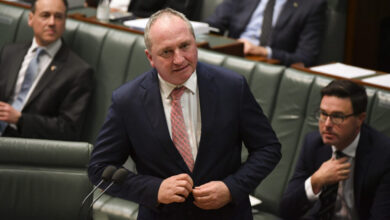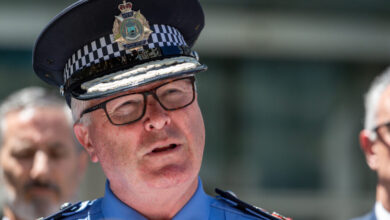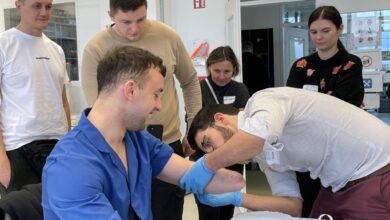By Deric Gilliard
It took the most life altering event of the 21st century to finally mute the importance of one of the most significant figures of the second half of the 20th century. Joseph Echols Lowery, co-founder of the Southern Christian Leadership Conference (SCLC), the direct action civil rights organization that served as the firing pin that used non-violent protest to push Congress to pass the Civil Rights Act of 1964 and coordinated movements across the nation that led to the passage of the Voting Rights Act of 1965, has finally expired. He was 98. Due to social distancing requirements from COVID-19, a public celebration of his life and legacy will be postponed until fall.
Lowery, born in Huntsville, Alabama, was one of the inner circle of preachers credited with launching the Southern Christian Leadership Conference in 1957, along with Dr. Martin Luther King Jr., Rev. Ralph David Abernathy, Rev. Fred Shuttlesworth, and Rev. C.K. Steele of Tallahassee.
Unlike the bombastic Rev. Hosea Williams, who served as King’s fiery field general, agitating and igniting movements, or Andy Young, known as the great negotiator and someone who knew how to deal with white intransigents resisting change, or Shuttlesworth, whose bravery is legendary after his home was bombed several times and he was beaten repeatedly — along with his pregnant wife, Ruby — while trying to enroll their children in school in 1957, Lowery’s legacy is more nuanced.
Primarily an administrator until the time of King’s assassination, when Lowery was chairman of the SCLC’s national board of directors, he was not known as someone who had repeatedly been battered or terrorized on the front lines in the fifties and sixties, though he did have scrapes with racist leaders. In fact, in 1979, in Decatur, Alabama, Lowery and the SCLC-led protesters, while challenging the arrest of a docile, retarded black man, Tommie Lee Lines, for allegedly raping two white women, were confronted by armed Klansmen, who shot at the non-violent protesters, including Mrs. Evelyn Lowery. She narrowly escaped a bullet through her windshield while seeking cover in the floorboard of her car.
Lowery was arrested numerous times, including while protesting our government’s support of apartheid South African regime in 1984, and challenging the dumping of toxic waste in black communities in North Carolina in 1983, along with Dr. Ben Chavis. He also led the successful integration of the bus lines in Mobile, AL before the seismic, 381-day boycott triggered by Rosa Parks in Montgomery in 1955. In 1965, King delegated him to present the movement rights’ marchers’ demands to intransigent Alabama governor and avowed segregationist George Wallace.
Lowery’s enduring legacy, I believe, is that he led the SCLC back from near death, to vibrancy and noteworthy relevance, after taking over in 1977, nine years after the King assassination, following the rocky and uncertain tenure of Abernathy’s presidency. No one could be expected to replicate the charisma, dynamism, and eloquence of King. Indeed, Abernathy never found his footing during a period when fellow SCLC insiders Young and Rev. C.T. Vivian say he tried too hard to be King, instead of himself. And even when Lowery edged out Williams for the presidency in 1977, it was a struggle to regain momentum.
Gradually, however, despite being in the midst of what King historian and Pulitzer Prize winner David Garrow deemed a “post-civil rights era,” Lowery grabbed hold of a series of critical issues and made them his and the SCLC’s own. Gun violence, voting rights, hate crimes, economic injustice, affirmative action, educational tracking, redistricting, disparities in sentencing, black-on-black violence: you name the issue, Lowery battled long-time rival Rev. Jesse Jackson for national leadership as the clarion voice speaking for black activism and justice throughout the last quarter of the 20th century. Whatever the topic, Lowery spoke to it with eloquence, precise insight and passion.
On the 25th anniversary of the King assassination, April 4, 1993, Lowery and the SCLC launched the Stop the Killing/End the Violence campaign. Urging Americans to “turn to each other, not on each other,” the campaign ultimately took tens of thousands of guns off the streets through a controversial gun buy-back program frequently supported by corporations. Along the way, he challenged Presidents Reagan, Carter, Bush 41 and 43 and Bill Clinton, who credited Lowery with being the leader who moved him to raise the black church burnings to a national state of emergency. He pointedly criticized the U.S. bombing in Kosovo and angered the SCLC’s many Jewish supporters by agreeing to meet with Palestinian leader Yasser Arafat. The Methodist minister also picketed Atlanta’s Prior Tire, over its challenge to the city’s landmark affirmative action stand and went toe-to-toe against hometown corporate giant Coca-Cola to pressure it to pull out of its investments in the from a racist South African regime. Lowery and the SCLC signed hundred million-dollar economic covenants with Publix, Shoney’s, which required they promise to hire more black managers, utilize more black vendors and place more stores in minority neighborhoods.
Rooted and grounded in voting rights and education, Lowery and the SCLC established and kept alive dozens of chapters throughout the country and the world while registering hundreds of thousands of voters throughout the years, via motor voter campaigns. Adept at working with groups focused on LGBTQ, environmental, anti-war and economic justice issues, he and the SCLC were broadly criticized as the first “mainstream” civil rights organization to actively support Min. Farrakhan’s 1995 Million Man March. First and foremost a minister of the gospel, Lowery, who refused to separate his ministry from his activism, also pastored United Methodist churches for over 40 years. Along the way, Ebony selected him as one of America’s top 15 preachers.
It would not be possible to salute the legacy of Lowery without including the laudable contributions of his wife, Evelyn. Founder of the SCLC/W.O.M.E.N., she instituted the annual Drum Major for Justice Awards, launched the Wings of Hope anti-drug initiative, introduced the annual civil rights tours throughout the south and erected monuments to honor the valiant foot soldiers who labored non-violently To Redeem the Soul of America, the SCLC’s motto. Together, they were one of America’s most influential couples of their era, and significantly improved the arc of social justice in the South.
Never resistant to go against the grain, Lowery backed the upstart, the little-known senator from Illinois, Barack Hussein Obama, against the chosen one, former Secretary of State Hillary Clinton, for the 2008 Democratic presidential nomination. Lowery did so despite the fact that most liberals, and virtually all black leaders, backed Clinton. Lowery campaigned vigorously for Obama, and in 2009, brought the fiery, controversial benediction at the conclusion of the inauguration of the nation’s first black president. Obama awarded Lowery with the Presidential Medal of Freedom, later that year.
Lowery was no King, but he never missed a payroll while reinvigorating the SCLC and ensuring that it remained a powerful force speaking truth to power during his twenty-year tenure at the helm from 1977-1997. After his time at the SCLC, he founded the Georgia Coalition for the People’s Agenda, a 501C-3 that boasts chapters and affiliates through nine states, still focusing on voter rights and registration. Farewell to the “Dean” of the civil rights movement.
Deric Gilliard is former communications for the SCLC and the author of “Living in the Shadows of A Legend: Unsung Heroes and ‘Sheroes’ who Marched with Dr. Martin Luther King, Jr.” He can be contacted at gilliardpr@gmail.com.






